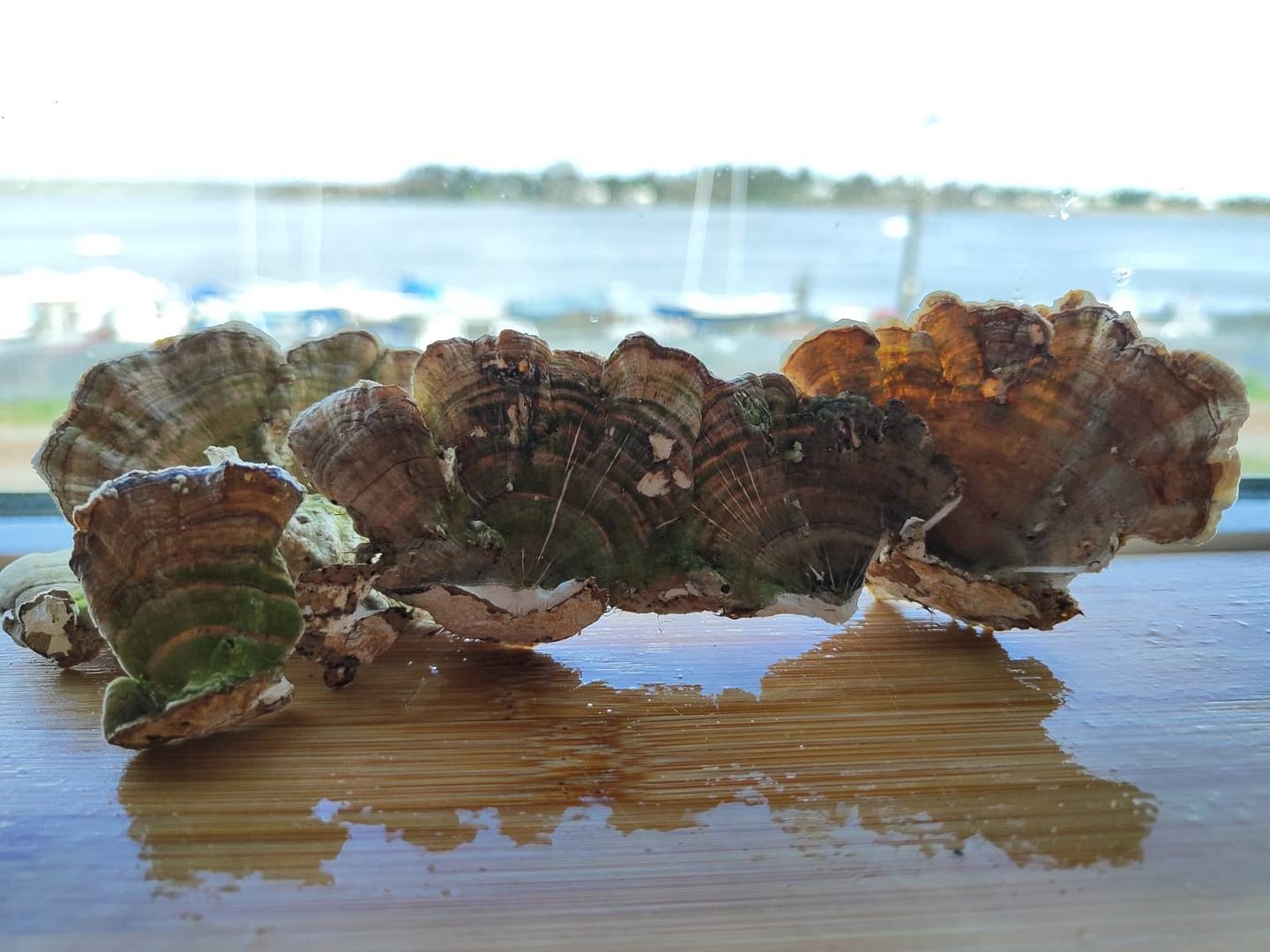The turkey tail mushroom, known scientifically as Trametes versicolor, is a fairly common woodland fungus found throughout the world. It has a rich history of traditional use in various cultures and has been recognized for the potential medicinal properties it possess.
Historically, the turkey tail mushroom has been used for centuries in traditional Chinese medicine (TCM). It is referred to as “Yun Zhi” in Chinese, which translates to “cloud mushroom.” In TCM, it has been valued for its immune-enhancing properties and its ability to support overall health and vitality. The mushroom was often brewed into teas or soups to extract its beneficial compounds.
As well as in China, the turkey tail mushroom has been used in traditional healing practices in Japan, Korea, and other Asian countries. In Japan, it is known as “Kawaratake,” meaning “mushroom by the riverbank.” The Japanese have a long history of incorporating it into their diet and using it for its potential health benefits.
In the Western world, the turkey tail mushroom gained recognition in the 20th century for its medicinal properties. In the 1960s, a Japanese researcher named Dr. Hiroshi Horiguchi discovered that the mushroom contained a compound called PSK (polysaccharide-K) that exhibited anti-tumor properties. This led to further research and the development of a patented drug called “Krestin” or “PSK” derived from turkey tail mushrooms. It has been used as an adjunct therapy in cancer treatment in some countries, particularly in Asia.
In recent years, the turkey tail mushroom has gained popularity in the field of complementary and alternative medicine. It is often used as a dietary supplement or as an ingredient in various health products. The mushroom is believed to contain an array of bioactive compounds, including polysaccharides, beta-glucans, and antioxidants, which contribute to its potential health benefits.
Research on the turkey tail mushroom’s medicinal properties has focused on its immune-enhancing effects, anti-inflammatory properties, and potential anti-cancer activity. Studies have suggested that the mushroom may have immunomodulatory effects, helping to strengthen the immune system and improve its response to infections and diseases. It has also been investigated for its potential in reducing inflammation and supporting gut health.
It’s important to note that while the turkey tail mushroom shows promise in scientific research, more studies are needed to fully understand its mechanisms of action and potential applications. As with any medicinal substance, it is advisable to consult with a healthcare professional before using it for therapeutic purposes.
With this long history of traditional use in various cultures (especially Asia). Its recognition for potential health benefits has led to scientific research and the development of medicinal applications. While more research is needed, the turkey tail mushroom continues to be studied for its immune-enhancing, anti-inflammatory, and potential anti-cancer properties.
While we cannot claim the liquid extract turkey tail tincture product offered by Byrne’s Organics yields any of the promising potential benefits outlined in this post, we are certainly proud to be involved in any small way with the beautiful, rich history of the turkey tail mushroom.

